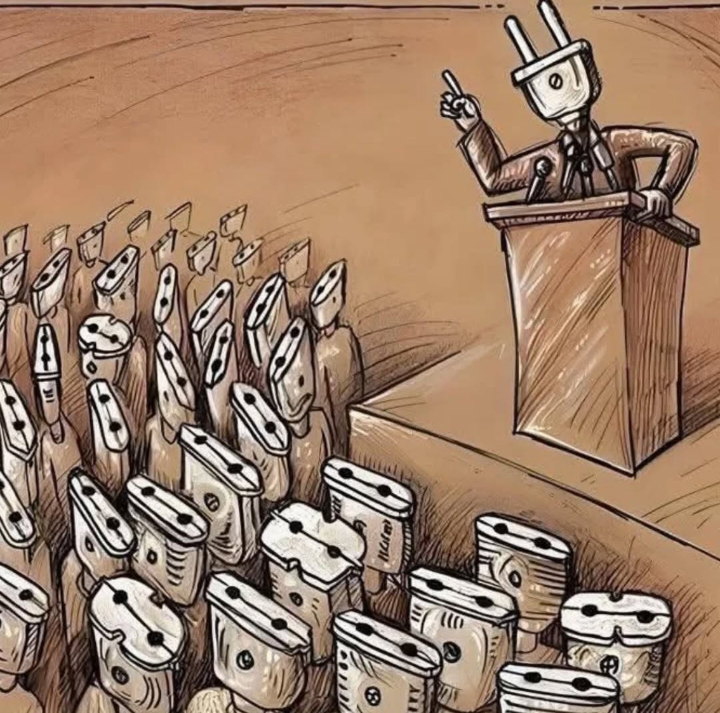Here is a more detailed explanation of the negative impacts of excessive social media use on the sleep quality of adolescents:
- Sleep Time Delay: Adolescents who spend a lot of time on social media tend to delay their bedtime, causing them to go to sleep later at night. This habit disrupts the body's natural circadian rhythm, which regulates the sleep-wake cycle.
- Reduction in Sleep Duration: Excessive social media use directly reduces the total hours of sleep for adolescents. Shorter sleep duration and high social media use can affect brain activity. Sleep deprivation can negatively impact physical and mental health, including cognitive function, mood, and the immune system.
- Decline in Sleep Quality: Poor sleep quality is strongly associated with intense social media use. Sleep disturbances such as difficulty initiating sleep, frequent awakenings during the night, and daytime dysfunction are increasingly common among heavy social media users.
- Excessive Stimulation from Screens: Exposure to blue light from electronic device screens inhibits the production of melatonin, an important hormone for regulating sleep. In addition, social media notifications and interactions can trigger emotional and cognitive arousal, which complicates the natural process of falling asleep.
- Impact on Brain Activity: Short sleep duration and high social media use can affect brain activity in the fronto-limbic region, which plays a role in executive control and reward processing. This can lead to concentration problems, poor decision-making, and difficulty controlling impulses.
- Addiction and FOMO (Fear of Missing Out): The constant availability of social media and notifications can trigger a fear of missing out (FOMO), which causes adolescents to constantly check their devices, even at night. This can lead to increased sleep disturbances and difficulty returning to sleep after waking up.
- Influence on Mental Health: Excessive social media use can also impact the mental health of adolescents, which in turn can affect their sleep quality. Feelings of loneliness, isolation, pressure to always be connected, and social comparisons can lead to stress and anxiety, which can disrupt sleep.
To overcome these negative impacts, it is recommended that adolescents limit their social media use, especially before bed. Creating a quiet and comfortable sleep environment, establishing a consistent sleep routine, and avoiding the use of electronic devices in the bedroom can help improve sleep quality. Education about the importance of adequate sleep and strategies for managing social media use is also important for improving the sleep health of adolescents.
Here are some ways to answer the question how to encourage the adolescence to limit social media usage:
1. Set time limits:
Use app timers or phone settings to restrict daily social media use.
2. Schedule “offline hours”:
Designate certain times (like during meals, before bed, or while studying) as screen-free.
3. Find alternative activities:
Encourage hobbies such as sports, reading, or hanging out with friends in person.
4. Be mindful of triggers:
Teach teens to notice when and why they open social media—boredom, stress, or habit—and replace it with healthier coping strategies.
5. Parental involvement:
Parents can model balanced social media habits and discuss online behavior openly.
How to Build Healthier Coping Mechanisms for Adolescents Who Use Social Media So Often
1. Increase Self-Awareness
Encourage adolescents to reflect on why they use social media.
For example, do they scroll when they feel lonely, bored, or anxious?
Understanding emotional triggers is the first step to creating healthier coping strategies.
2. Replace Scrolling with Positive Activities
Help them find alternative activities that provide comfort or enjoyment — such as exercising, journaling, drawing, or spending time with supportive friends.
These activities can fulfill emotional needs in a more balanced way.
3. Practice Digital Mindfulness
Teach adolescents to be more intentional when using social media.
For instance, they can set specific times for checking apps, unfollow accounts that cause stress, and follow pages that inspire or educate.
4. Strengthen Emotional Regulation Skills
Encourage mindfulness practices, deep breathing, or gratitude journaling to handle stress and anxiety instead of turning to social media for distraction.
5. Promote Real-Life Social Connections
Spending quality time with family or friends in person helps reduce dependence on online validation.
Real-world interactions build emotional resilience and self-esteem.
6. Seek Guidance When Needed
If social media overuse affects mood or self-worth, parents, teachers, or counselors should provide emotional support and guidance.
Professional counseling can also teach personalized coping strategies.











